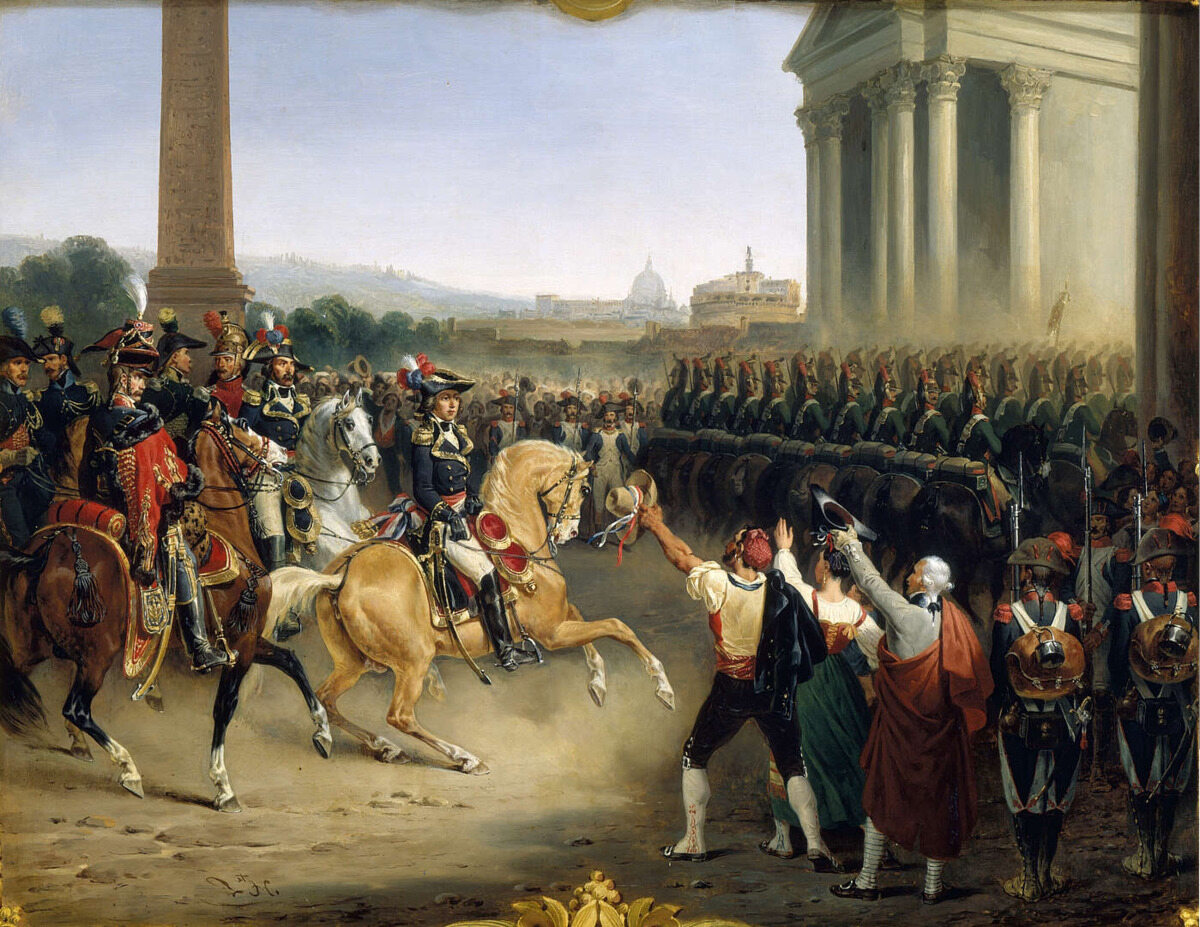
Who was Louis the Great, and what were the Neapolitan Campaigns? Louis the Great, also known as Louis I of Hungary, ruled from 1342 to 1382. He was a powerful king who expanded his kingdom's influence across Europe. The Neapolitan Campaigns were a series of military expeditions led by Louis to claim the throne of Naples. These campaigns were marked by intense battles, strategic alliances, and political intrigue. Louis aimed to assert his dominance over the Italian Peninsula, challenging the existing rulers and reshaping the region's power dynamics. His efforts left a lasting impact on European history, showcasing his ambition and military prowess.
Key Takeaways:
- Louis the Great's Neapolitan campaigns were driven by a desire for revenge and expansion, showcasing the complexities of medieval warfare and politics.
- The impact of the Black Death and the challenges of maintaining control over distant territories were key factors in Louis's campaigns, influencing the balance of power in Europe.
Neapolitan Campaigns of Louis the Great: An Overview
The Neapolitan campaigns of Louis the Great, also known as Louis I of Hungary, were a series of military expeditions in the 14th century. These campaigns were aimed at asserting his claim over the Kingdom of Naples. Here are some fascinating facts about these historical events.
-
Louis the Great was born in 1326 and became King of Hungary in 1342.
-
His campaigns in Naples were driven by a desire to avenge his brother's murder and to expand his influence.
-
The first campaign began in 1347, shortly after the assassination of his brother, Andrew, Duke of Calabria.
The First Campaign: 1347-1348
Louis the Great's initial campaign was marked by swift military actions and significant victories.
-
Louis assembled an army of around 1,000 knights and 10,000 infantry for his first campaign.
-
He crossed the Alps and entered Italy in late 1347, catching his enemies off guard.
-
The Hungarian forces quickly captured several key cities, including Bari and Aversa.
-
Queen Joanna I of Naples fled to Provence, leaving her kingdom vulnerable.
-
By January 1348, Louis had taken control of Naples and declared himself king.
The Black Death's Impact
The Black Death, a devastating plague, had a significant impact on Louis's campaigns.
-
The plague reached Italy in 1348, causing widespread death and chaos.
-
Louis's army was not immune to the plague, and many soldiers perished.
-
The Black Death forced Louis to abandon his campaign and return to Hungary.
-
Despite his withdrawal, Louis maintained a claim to the Neapolitan throne.
The Second Campaign: 1350-1352
Undeterred by the plague, Louis launched a second campaign to solidify his control over Naples.
-
In 1350, Louis gathered a new army and marched back into Italy.
-
This time, he faced stronger resistance from Queen Joanna and her allies.
-
The Battle of San Germano in 1352 was a decisive conflict during this campaign.
-
Louis's forces emerged victorious, but the cost was high, with many casualties on both sides.
-
Despite the victory, Louis struggled to maintain control over the entire kingdom.
Political Maneuvering and Alliances
Louis the Great's campaigns were not just about military might; they also involved intricate political maneuvering.
-
Louis sought alliances with other European powers to strengthen his position.
-
He secured support from the Pope, who had a vested interest in the stability of Naples.
-
Louis also negotiated with local Italian nobles to gain their loyalty.
-
These alliances helped him maintain a foothold in Naples, even when his military campaigns faltered.
The Final Campaign and Aftermath
The final phase of Louis's campaigns saw a mix of military action and diplomatic efforts.
-
In 1354, Louis launched his third and final campaign to reclaim Naples.
-
This campaign was marked by a series of sieges and battles, with varying degrees of success.
-
By 1355, Louis had managed to secure control over parts of the kingdom, but not the entire territory.
-
Realizing the difficulty of maintaining long-term control, Louis began to focus on diplomatic solutions.
-
In 1357, he reached an agreement with Queen Joanna, recognizing her as the ruler of Naples in exchange for certain concessions.
-
This agreement marked the end of Louis's direct military involvement in Naples.
Legacy of the Neapolitan Campaigns
The Neapolitan campaigns of Louis the Great left a lasting impact on European history.
-
These campaigns demonstrated the complexities of medieval warfare and politics.
-
Louis's efforts to claim Naples influenced the balance of power in Italy and beyond.
-
The campaigns also highlighted the challenges of maintaining control over distant territories in the medieval era.
Final Thoughts on Neapolitan Campaigns of Louis the Great
Louis the Great's Neapolitan campaigns left a lasting mark on European history. His strategic brilliance and relentless pursuit of power reshaped the political landscape of the 14th century. These campaigns not only expanded his kingdom but also showcased his military prowess and diplomatic skills. The alliances he forged and the battles he won demonstrated his ability to navigate complex political terrains. Louis's legacy continues to be studied and admired by historians, offering valuable insights into medieval warfare and statecraft. Understanding these campaigns helps us appreciate the intricate dynamics of medieval Europe and the enduring impact of Louis the Great's reign. His story is a testament to the power of ambition, strategy, and leadership in shaping the course of history.
Frequently Asked Questions
Was this page helpful?
Our commitment to delivering trustworthy and engaging content is at the heart of what we do. Each fact on our site is contributed by real users like you, bringing a wealth of diverse insights and information. To ensure the highest standards of accuracy and reliability, our dedicated editors meticulously review each submission. This process guarantees that the facts we share are not only fascinating but also credible. Trust in our commitment to quality and authenticity as you explore and learn with us.
